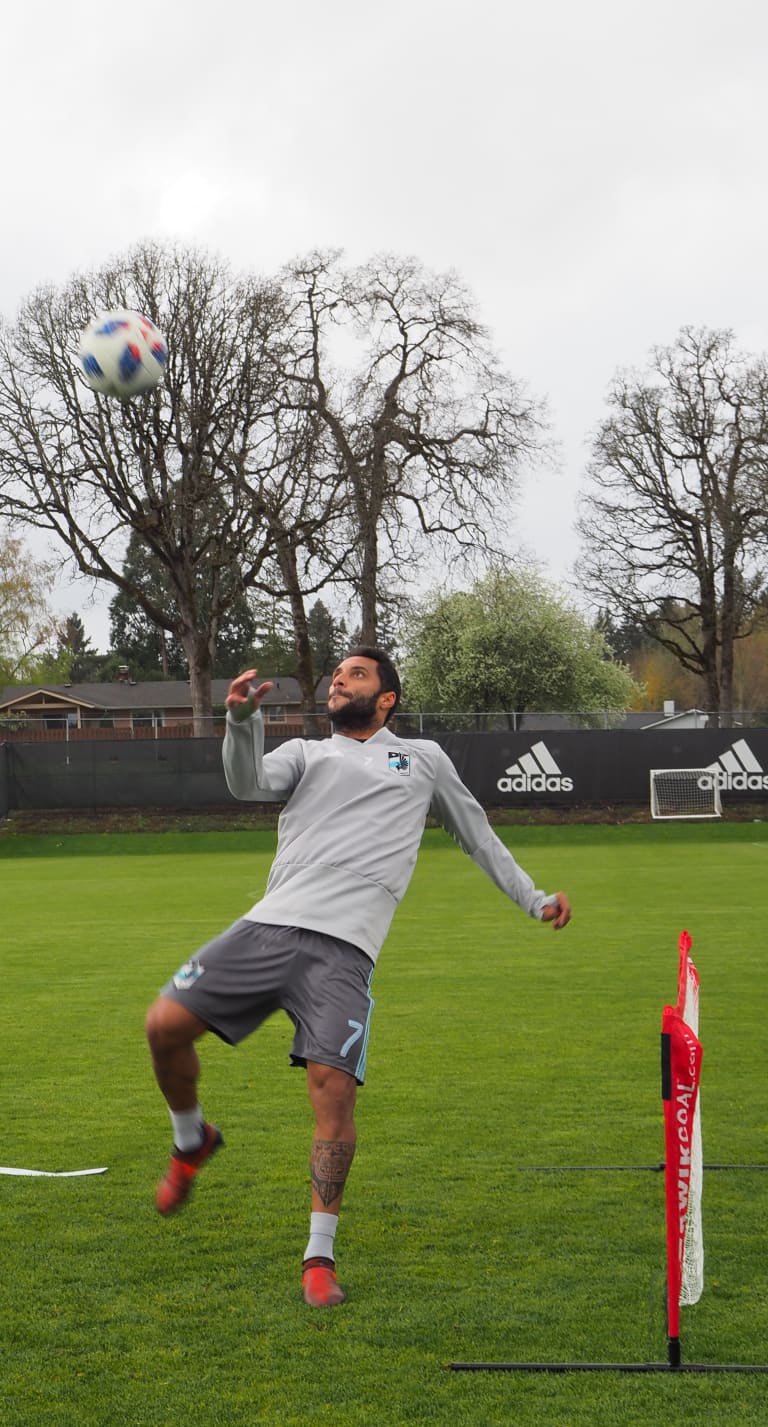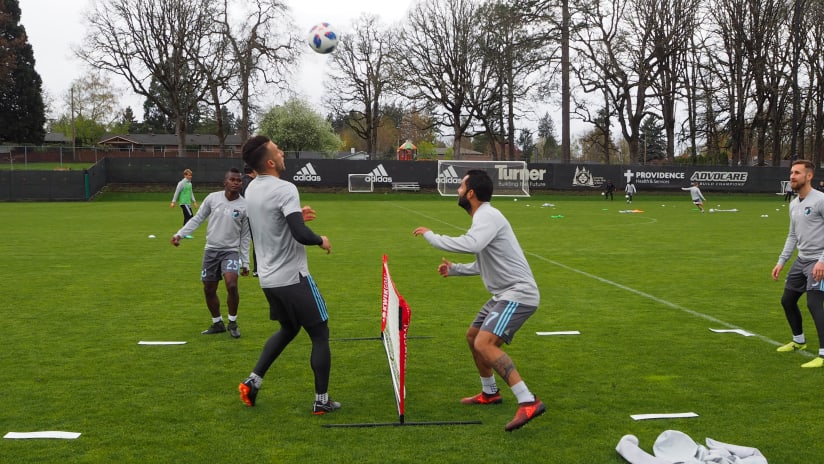For a game that relies as much on communication as soccer, it’s surprising how little of that communication is spoken. By and large, baseball proceeds in discrete steps. Football is pattern and recognition at a macro level. Basketball is often improvisational, yet proceeds generally from organized sets. But soccer requires improvisation on a surface the size of a football field. At those dimensions, the language becomes physical.
In a post previewing tonight’s matchup with the Portland Timbers, the Pioneer Press’ Andy Greder spoke with Ethan Finlay about how Darwin Quintero is adjusting to the Loons and how the team is working to incorporate a player who is learning English, but still most comfortable with Spanish. “What’s great in a game like soccer is it speaks for itself,” Finlay said. “It’s a language in itself and you start to figure things out.”
A language in itself: how beautiful. Although we’ve likely all of us been through the standard high school foreign language protocol of vocabulary quizzes and clunky translating homework, proficiency in a language doesn’t come to us best in neatly parceled chunks. You can learn nouns, adjectives, adverbs and how to conjugate verbs in a classroom, but you learn inflection, idiom and slang out there in the real world. It needs to flow through our experiences in ways both big and small.
For soccer, there’s maybe no better small way to get acquainted than soccer tennis, a game that’s something of a tradition on Fridays at Minnesota United practices. Yesterday at the Portland Timbers Training Ground, Jerome Thiesson and Ibson squared off against Francisco Calvo and Quintero across a short net with a simple set of rules: no more than three alternating touches or one bounce per side, keep it in the lines, game to 11.

It’s highly condensed competition and things can definitely get heated, but thinking about what Finlay said, and considering you have two native Spanish speakers, a native Portuguese speaker and a guy who’s maybe most comfortable in French but also speaks five other languages out there, it starts to look like a conversation in space. Deft touches with copious backspin, headers that float or snap, desperate dives accompanied by yelps and shouts in no language — or maybe in the one true language — and many, many bicycle kicks from Ibson.
The Brazilian midfielder has just one goal in his MLS career so far, but if every shot he took were a bicycle from directly in front of the net, he’d score every time. Quintero may be the Scientist of the Goal, but Ibson is undoubtedly the Scientist of the Bicycle. It’s his finisher and he uses it often. Although positions mean little here, it’s clear that Thiesson is the setup man for his side, with Quintero playing the same role on the other side, although with the addition of lightning quick headers he can place with surgical precision. Calvo mixes up drop shots and roundhouse strikes near the net. He likes to throw in the occasional shoulder strike to throw off the expected rhythm of a header.
It’s all discourse, an intimate and intense kind of chit-chat that is at once high stakes and no stakes. The players are working on their touch, warming up their individual feel for the ball. They’re getting loose for a big match against the Timbers the next night. But they’re also always getting to know each other a little better — how each other moves, how to anticipate each other’s intentions without words, how each other works the space they each occupy. I’d like to believe it really matters in that split second of eye contact across the pitch, but I can’t say if that wins you games. I’m an outsider and I don’t speak the language well enough. But I’m confident in saying that not having it — not having that communication, that shared unspoken language that puts you on the same page — can definitely lose you games.


